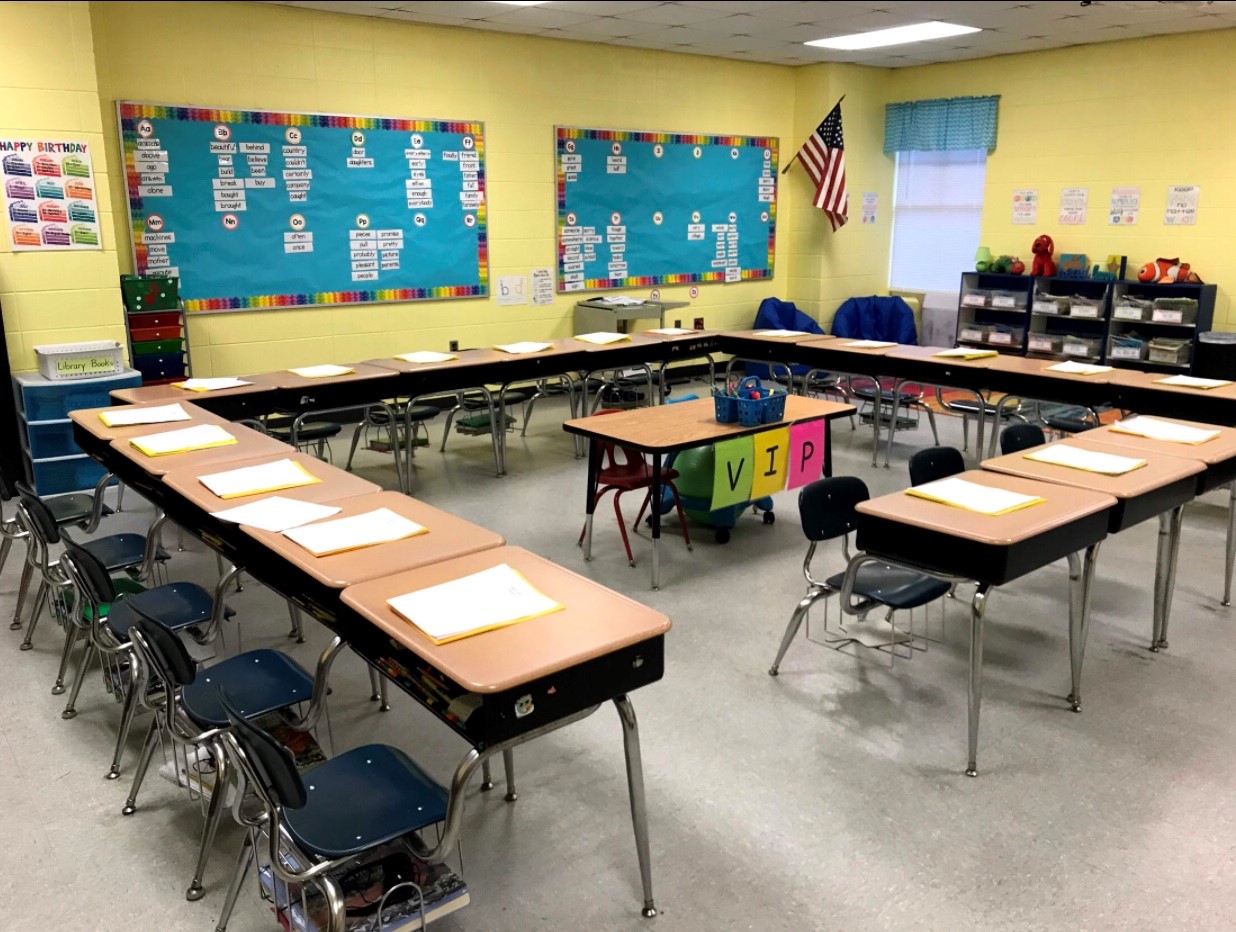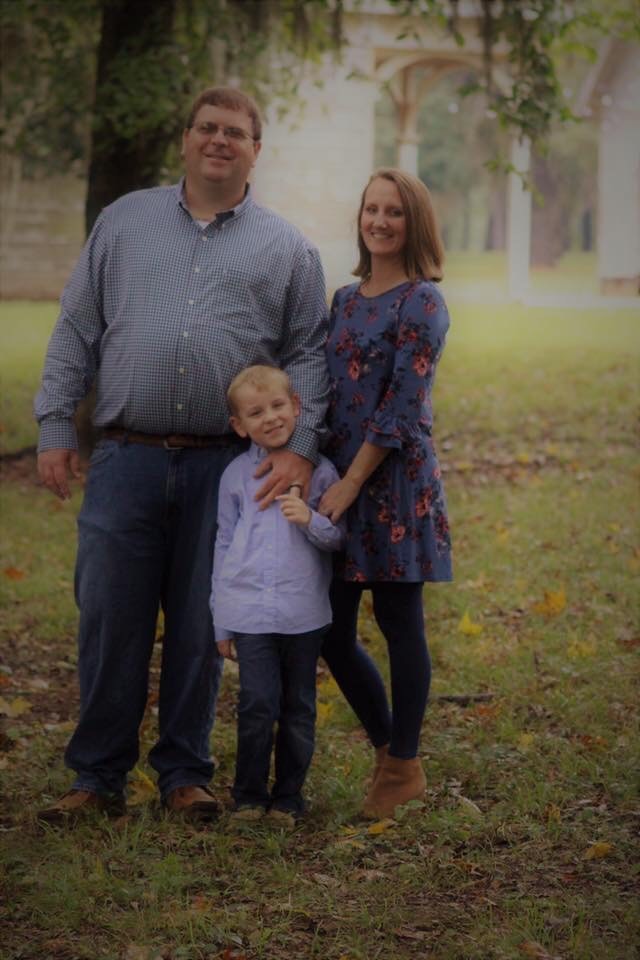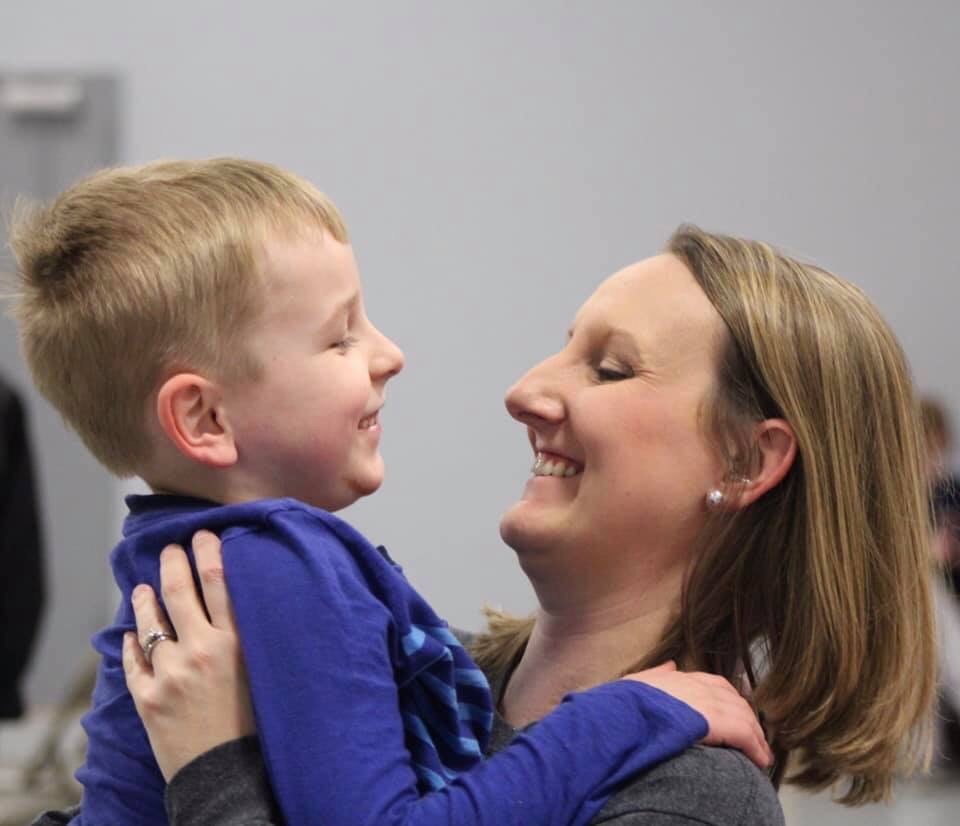Holly P. had a startling realization that she had hearing loss after not hearing a loud firework. Being a teacher with hearing loss was tough, but when hearing aids were no longer helping her with speech clarity, she feared having to stop teaching. Finding cochlear implant technology was her saving grace to continue her passion of teaching. See how her life has changed:
“My hearing was perfect throughout my childhood. It was so perfect that my parents joked that I never missed anything. It was soon after I started college at 18 that my hearing started slipping away. It was such a subtle loss that it went mostly unnoticed for some time. Then one night nearing New Year’s Eve, my family and I were sitting together inside our house. Suddenly, everyone was startled by a loud sound; neighbors were shooting fireworks nearby. It was at that moment that I realized something was wrong; I never heard a sound.
Soon after that night, I had an appointment with an ear, nose and throat doctor (ENT). A hearing test confirmed that I had bilateral sensorineural hearing loss. The doctor believed it could have been caused by a recent bout of mono. He assured me that the hearing loss was mild and should not get worse. Unfortunately, he was wrong. About a year later, another ENT confirmed a worsened mild to moderate hearing loss and told me I would eventually need hearing aids. This was not what I wanted to hear as I was only 20 years old, and I was determined I would be fine without hearing aids.
Hearing loss affecting teaching
 In 2007 I graduated from college and began my career as a 1st grade teacher. After some time of struggling to hear in my classroom, I reluctantly agreed it was time to try hearing aids. I was also referred to a specialist who sought to find out why my hearing was progressively getting worse. By this time, I was also having dizziness and ringing in my ears. This combination of symptoms pointed toward Meniere’s Disease. My doctor suggested I begin treatment for this to hopefully prevent or slow further hearing loss. The treatment helped, but my hearing loss had already worsened to the moderate-severe range.
In 2007 I graduated from college and began my career as a 1st grade teacher. After some time of struggling to hear in my classroom, I reluctantly agreed it was time to try hearing aids. I was also referred to a specialist who sought to find out why my hearing was progressively getting worse. By this time, I was also having dizziness and ringing in my ears. This combination of symptoms pointed toward Meniere’s Disease. My doctor suggested I begin treatment for this to hopefully prevent or slow further hearing loss. The treatment helped, but my hearing loss had already worsened to the moderate-severe range.
During the summer of 2017, it was time to upgrade my hearing aids. My husband and I decided I should try the newest hearing aids with the most advanced technology. I was so excited to try new technology because I had started to struggle more with my hearing, especially with my students at school. The hearing aids did help a great deal in the beginning. However, I soon noticed that even though the volume was better, I was struggling to understand speech. I even missed a fire drill at school, when I failed to hear the announcement and then also did not hear the ‘tones’ that beeped over the intercom.
I was so embarrassed and upset; how could I be a good teacher if I could not even hear a fire drill? That night that I came home and told my husband I did not know how much longer I could continue to teach. Teaching has always been my passion, it is something I feel like I am supposed to be doing. The thought of having to quit because I could not hear absolutely broke my heart. We decided to talk with my ENT and see what other options were available.
Exploring cochlear implant technology
 During the next visit with my ENT, I expressed my concerns. I felt like I was failing at work, I was unable to have meaningful conversations with my family and friends and I wanted to hear my 5-year-old son talk to me like a normal mom. I needed help, my hearing aids were no longer the answer. After much deliberation he agreed to let me take the test to see if I qualified for a cochlear implant.
During the next visit with my ENT, I expressed my concerns. I felt like I was failing at work, I was unable to have meaningful conversations with my family and friends and I wanted to hear my 5-year-old son talk to me like a normal mom. I needed help, my hearing aids were no longer the answer. After much deliberation he agreed to let me take the test to see if I qualified for a cochlear implant.
During my first test in October 2018, I scored too high and was told I would not qualify for a cochlear implant. I was disappointed but was told I could try again in six months. In April 2019 I was tested again, this time with background noise. I could tell immediately how much I was struggling to hear. The results showed that I only had 20 percent of understanding in my right ear and would qualify for a cochlear implant on that side. I was nervous but so excited about the possibility of improved life with a cochlear implant.
My audiologist told me about my options for cochlear implant brands. I knew I wanted to go with Cochlear because I had heard of others who had been successful with it. She told me that the Cochlear™ Nucleus® 7 Sound Processor had great technology capabilities and could be paired with an iPhone®12. I knew without a doubt that was the device that I wanted.
My world with a cochlear implant
 The surgery was not as bad as I had expected. The hardest part was waiting a month for activation. When that day finally came, I did not know what to expect. When my audiologist turned on my device for the first time, I was excited to hear things I had not heard in quite awhile. However, I was not fully prepared for how things would sound with the cochlear implant. But every day, with lots of listening practice, speech and sounds became more normal. By the time school began in August, I was hearing almost completely ‘normally.’ I cannot express how thankful I am for this!
The surgery was not as bad as I had expected. The hardest part was waiting a month for activation. When that day finally came, I did not know what to expect. When my audiologist turned on my device for the first time, I was excited to hear things I had not heard in quite awhile. However, I was not fully prepared for how things would sound with the cochlear implant. But every day, with lots of listening practice, speech and sounds became more normal. By the time school began in August, I was hearing almost completely ‘normally.’ I cannot express how thankful I am for this!
I chose to get three accessories with my cochlear implant. With the Aqua+3 kit, I am able to use my Nucleus 7 Sound Processor while swimming, which is a favorite activity for my son and I during the summer. I also use the True Wireless™ TV Streamer at home, and the True Wireless Mini Microphone is useful at school for me to listen to individual students read. I use the Nucleus Smart App on my iPhone to control my programs and volume, and I enjoy streaming music and videos through my iPhone. I love that the sound goes straight to my sound processor, allowing me to hear perfectly.
In the past, I was always so worried about what I was missing in every conversation I had and every aspect of my life. Now, I am more confident than ever. I am able to have meaningful conversations with my students and coworkers without fear of what I am missing. I am able to talk with my family and friends and no longer fade into the background. My cochlear implant is giving me my life back, and I am so thankful for this amazing technology.”
Are you a teacher with hearing loss or are you struggling to hear with hearing aids? Discover cochlear implant technology today.
- For information on sound processor and app compatibility, visit www.cochlear.com/compatibility.
- iPhone is a trademark of Apple Inc., registered in the U.S. and other countries. App Store is a service mark of Apple Inc., registered in the U.S. and other countries.
- Nucleus 7 with Aqua+ is water resistant to level IP68 of the International Standard IEC60529. This water protection rating means that the sound processor with the Aqua+ can be continuously submerged under water to a depth of 3 meters (9 feet and 9 inches) for up to 2 hours. This water protection only applies when you use the Aqua+ and rechargeable batteries.